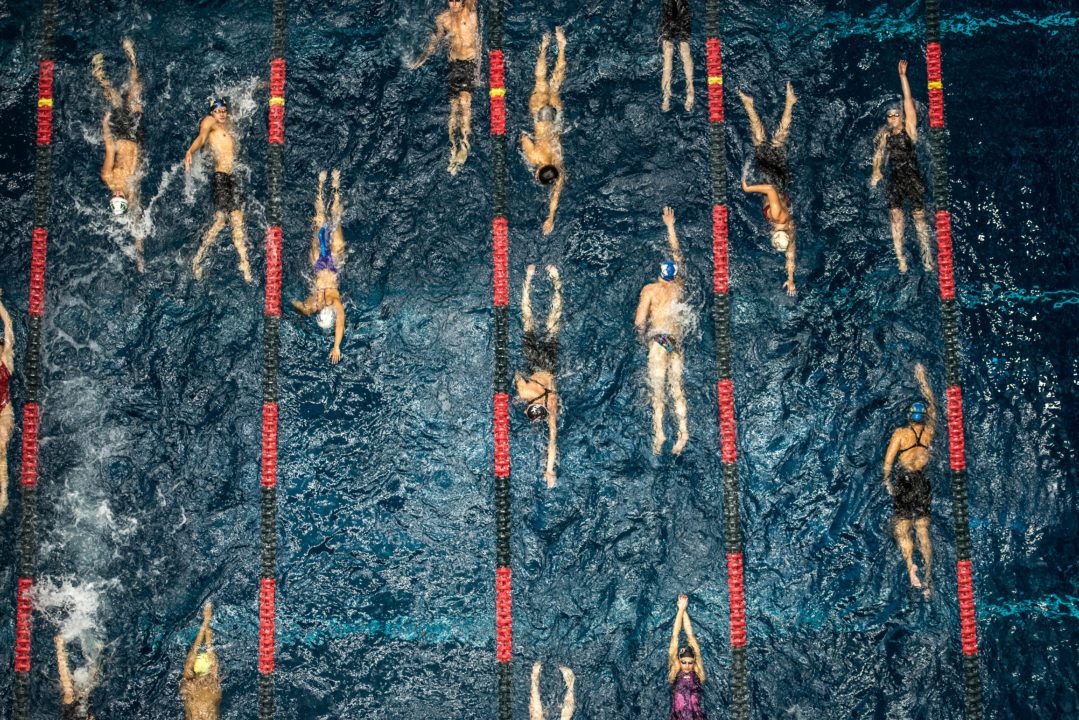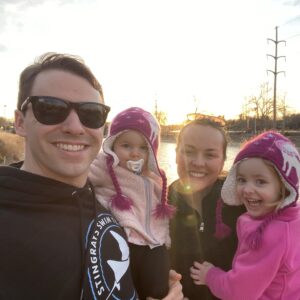Courtesy of Dan Vale, the head swimming & diving coach at Beloit College.
After 10 years of coaching club, I finally had the opportunity to make the jump to college coaching. I just finished my first year as Head Coach at Beloit College (a Division III school in Beloit, WI), and here are some things I learned in my first year:
Background
I have a distinct memory of being 16 years old, looking at my coaches in the middle of practice, and realizing they had my dream job. I regularly spent time poring over swimming statistics and splits from whatever recent high-level meet I was following through SideArmStats. I was becoming obsessed with the sport of swimming and I knew I wanted to pursue a career in coaching.
I was lucky enough to coach a summer league team for a few years in college and complete a couple of coaching internships while juggling classes and swimming as a D-II athlete. Shortly after completing my undergraduate studies, I got my first full-time coaching position.
These first few years of full-time coaching were filled with ups and downs, periods of burnout, and unexpected challenges—namely, the COVID-19 pandemic. After spending most of 2020 picking up odd jobs to make ends meet, I was able to come out of the pandemic with a full-time, stable, and largely enjoyable head coaching position with a club team (a rare find in the coaching sphere).
At this point I had been coaching full-time for six years. I was doing what I wanted to do, but the opportunity to advance to coaching on the collegiate level had yet to present itself—and with a wife and two young kids, I worried that even if the opportunity did appear, I wouldn’t realistically be able to take it. College opportunities are extremely limited and most entry-level experiences (graduate assistantship, volunteer coaching) are not conducive to the needs of a young family. For the most part, I had made peace with the fact that college coaching might not be in my career path.
Welcome to Beloit
I had been following the Beloit College team for several years and had multiple former swimmers involved in the program, and felt that it might be one of the few opportunities that aligned with my coaching experience and family needs. The head coach position became open last summer, and I was unexpectedly offered the position. My wife and I knew this was my shot and we decided to take it. Though I came into the job full of confidence, it took less than one day for me to realize that I needed to relearn so many of the skills I thought I had down solid—not to mention navigating recruiting for the first time.
Even in the middle of my first season, I was already seeing some blind spots in my approach due to a lack of experience and was learning lessons to act on in the future. In hopes of inspiring others to take leaps in their career, here are several of those lessons:
Developmental versus Adult Coaching
One of the biggest adjustments for me has been working with adult athletes instead of age group athletes. While technical skills and knowledge remain the same, the teaching of these skills is drastically different between these levels.
Coordination and athleticism in college athletes are much more static when compared to age group swimmers. College students have 18+ years of habits and experience reinforcing their actions, so enforcing changes on an adult who is predisposed to a certain style and only has a certain level of coordination can be a waste of time and energy. I had to learn very quickly not to revert to my club-coaching habit of devoting excess time to skills that should already be in place at the college level – if they’re not there already, it’s probably too late (think about shoulder mobility for a tight streamline, or the timing of a breakout stroke, or the ankle mobility in a kick.)
Similarly, the stimuli required to achieve physiological adaptation in adult athletes were a shock as well. With younger athletes who grow significantly every six months, a minor stimulus can have major effects on the adaptations in their bodies, and they naturally grow taller and stronger in that same time period. As a club coach, I focused on engagement, creativity and fun, while placing a heavy emphasis on technical development and fundamentals, but the specific physiology largely took care of itself. I learned that with college-aged athletes, the physiological stimulus has to be challenging, specific, and consistent to develop a desired adaptation.
Advanced Athletes Require Advanced Coaching
Another huge lesson I learned in my first season is that my approach to college coaching needed to be more robust, detailed, and driven by data.
For years, coaching clinics have been pointing towards data as the way of coaching in the not-so-distant future, and while I never disagreed with that premise, I often disagreed with the pragmatism and the approaches taken to implement this. (How is a club coach supposed to get useful and consistent data on 150+ swimmers in a cost-effective way?)
Having worked now with more advanced athletes in a smaller group, I see a greater need to track metrics and use them to create a more effective training and coaching program. While we achieved some team success, I think I failed several of my swimmers by not creating a truly effective training plan that constantly and relevantly challenged them to improve and also prepared them for the demands of their individual goals. This was a large realization mid-year, but as the swim coaching cliche goes, “hard work still works,” and a coach’s confidence (even if faked at times) and vulnerability can go a long way to build trust and maximize results, despite suboptimal preparation.
Where We Go From Here
I still have much to learn next year, and the next year, and the next… but these are just two areas where I hope to improve next year; this does not include numerous other mistakes, miscalculations, apologies, and difficult conversations of the past year and the future that will maximize my coaching abilities and our program’s development.
I have already begun planning out the next season and thinking through where I want to put my time and energy. In an attempt to incorporate more data into my coaching, I have established some key metrics I hope to track and will better prepare our team to perform at a higher level (for my fellow coaches, I plan to better track aerobic yardage and intensity, race pace volume, and power volume and intensity).
As I mentioned previously, I hope my story can inspire someone to take a leap, be unafraid to make mistakes, and make the most of the learning opportunities before them. Go Bucs!
 ABOUT DAN VALE
ABOUT DAN VALE
Dan Vale is the Head Coach for Swimming & Diving at Beloit College. He resides in Rockford, IL with his wife and daughters.


We could not be happier to have Coach Dan and Cosch Garry at Beloit! So excited to witness the future as this team grows and develops.